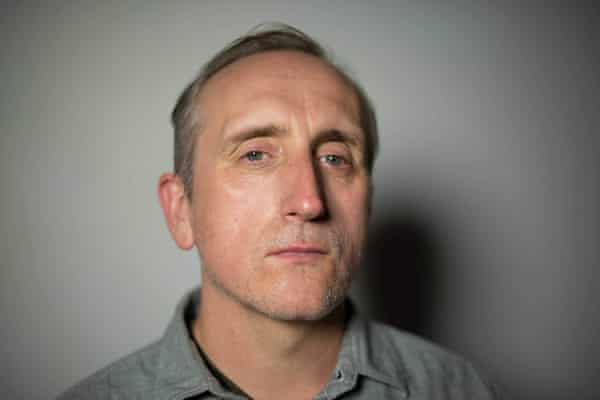Michelle Zauner, Japanese Breakfast
I had really given up on music after my mom passed away [in 2014], and then of course the record that I saw as my death rattle [2017’s Soft Sounds from Another Planet] got picked up in a big way. It was a very bittersweet moment where all these great things were happening in the wake of loss. I didn’t allow myself to feel that for a long time. Now I feel ready to embrace feeling.
I actually wrote this album (Jubilee) before the pandemic, at the end of 2019. After writing two albums that were rooted in grief and general suffering, and a book about that experience, I felt ready to move on. A lot of the record is about fighting for joy, and struggling to feel joy, or walking away from a situation that negates your joy. Also getting older, and knowing that so much art is rooted in these very intense, almost teenage-like feelings, I wanted to find a way to tap into that as an adult.
Especially now, we’re really aware that joy is precious and needs to be carved out. A lot of the time I can be really hard on myself. [The song Paprika] was a reminder not to take it so seriously. Don’t stress out so much about writing a record about joy! It’s gonna sound contrived if you don’t actually feel that way. Japanese Breakfast’s new album Jubilee is released 4 June on Dead Oceans. Zauner’s memoir Crying in H Mart is published 5 August by Pan Macmillan
Jon Batiste
I started making this album in September 2019. It’s a love letter to my history and heritage, and the Black diasporic music and culture that has been marginalised. Trump was in office. There was social unrest, aspects of the political system being challenged in unprecedented ways, such as the Black Lives Matter movement, then the pandemic. I put hope in my music because having authentic hope is a radical stance right now. I say this in a purpose-driven way as opposed to an egotistical way: what I’m doing is bigger than me.
We’re in a very dehumanising time. You have to have a lot of therapy – by therapy, I mean to access things that give you the feeling of being human and connect us to our greater purpose. When I create, it’s never separate from my faith as a Christian. I take my faith as the ultimate form of optimism, because it allows you to understand as much as anyone can why things are the way they are. There are things we can’t change, but we should just focus on things that we can change. That’s what all of the greats have done. Jon Batiste’s album We Are is out now on Verve
MC Taylor, Hiss Golden Messenger
If not hope, then what? That is the essential question of being for me now. What is the alternative? I don’t necessarily consider myself a rock of hopefulness; I don’t think of myself as someone that can walk into a room and animate it with visions of unfettered joy and possibility. However, as the father of two children, ages eight and 12, who continually bear witness to the injustices of our world, I believe that part of my obligation to them is to offer a picture of the world that, while based in reality, interprets any small cracks in the forces that work against them – against us – as seeds of potential for a better world, one that is fairer and more just. Otherwise, how could I talk to them about climate change, or the murder of George Floyd by a cop, or the marshalling of untruth, racism, and xenophobia in pursuit of money and power all over the globe, without breaking down?
This type of hope has to be intentional. It takes work in the same way that a mindfulness meditative practice does. You do it enough, and you start to see sparks of hope in places you didn’t expect them; you also notice the things that want to extinguish those sparks. So maybe Quietly Blowing It – though I certainly wasn’t thinking of it as such when I was writing it – is in part a gathering of some of these seeds of hope, as well as a reckoning of the battles that we face. In other words: the sanctuary, and the ways that those in power will break us on the wheel for our truth-telling. But if not hope, then what? Hiss Golden Messenger’s new album Quietly Blowing It is released on 25 June on Merge
Amy Lee, Evanescence
My sister died when I was six and it set my mind away from typical kid stuff. When I started writing music as a teenager, I was going through a lot of those big questions: “Who are we, what is our place in the universe, what is the point and where do we go when we die?” I lost my brother three years ago and the pandemic has meant we’re all facing our mortality so there’s that deeper need for connection through music and art.

Everything feels connected for me at the moment. I’ve never felt moved by politics like I have in the last couple of years. Every day waking up to a new ridiculous horror, even something as stupid as our former president’s tweets. We’re being made to feel like we have no power or voice, but I’m being pushed to think, yes, we do if we stand together. That’s what our song Use My Voice is about. Truth has to rule. We can break out of the old moulds and invent a better future if we admit the things that are broken in ourselves and in society. Evanescence’s album The Bitter Truth is out now on BMG
Fred Again
People tell me I’ve made a joyful record but to me it’s devastating. Actual Life (April 14 – December 17 2020) was impacted by the worsening illness of a very close friend. The song Me (Heavy) is the one that’s most about death but people say it sounds really hopeful. Perhaps I was subconsciously trying to find some sort of positivity while everything around felt tragic. Most of the really optimistic people I know have become like that after really challenging circumstances.
The album is a diary of other people’s moments in life. I recorded Carlos, a construction worker in Atlanta, saying “Friend, we’re gon’ make it through!” and he was a song just waiting for some music. The pandemic didn’t consciously influence the album other than the recording circumstances, but Big Hen (Steal My Joy) samples my flatmate Hen and I on shrooms watching the sun come up over a deserted London. It was a beautiful moment and the song came from a place of pure hope and joy.
Before I wasn’t so bothered about how my music resonated. Now, the meaningful messages I’ve had from people who’ve heard the album already and found it inspiring will stay with me forever. I’m very proud to have that effect. Fred Again’s new album Actual Life (April 14 – December 17 2020) is out now on Again… Records
Chuck Johnson
Recent years here in the Bay Area, there have been these parallel, destructive forces of gentrification and wildfires. I was intrigued by how gentrification is sometimes actually enabled by spaces being destroyed by fire. I lived in a warehouse that was a live-work space and venue. After I moved out, a tragic fire claimed two lives – a couple of years before Ghost Ship [in Oakland]. That building is now luxury condos, all the residents displaced. I wanted to acknowledge the loss of important spaces, and at the same time find signs of hope. I see more hope in how the natural world is able to deal with fire and use it as a process for germinating seeds. I don’t see as much hope on the human side.

I sampled reverb from the space where I lived that was destroyed by fire, and there’s a performance from an Oakland space called Life Changing Ministry. The sounds of these spaces live in our memories as sonic ghosts. It was interesting to work with reverb because they’re not perfect representations – they carry distortions and inaccuracies. I’m sure my memories already carry distortions and inaccuracies. My hope was that the album would present the listener with a space to acknowledge loss and then hopefully also to experience that sense of hope or renewal. Optimism needs reinforcement for me. Music was a way to access that. Chuck Johnson’s album The Cinder Grove is out now on VDSQ
Sofia Kourtesis
My EP Fresia Magdalena is all about activism, trying to bring positive change and hope. It was a homage to my dad. He was a pro bono lawyer. The song Nicolas references his last case, defending a journalist who found out that a politician was corrupt. After he died, I needed to show my pain and also that the bad is not the end, it’s about what we give to our next generation. I saw it as my mission to be vulnerable with my father when I was losing him: “I feel your pain – I’m in pain too because I’m losing you. So if you open up and I open up, we can help each other.” Now I’m singing more, and I hope that being more vulnerable will open up the conversation for others to show their pain, too.
Fresia is my mother’s name and Magdalena is the district where she works as a politician and a social worker. Seeing the fight she has in her fills me with hope. [In the past], it was always important for me just to make people dance and make them happy. But now when people listen to my music, I want them to think about the changes they can make, to stand up for their rights – to get people dancing and trick them into listening deeper. We humans can change the world through demonstrations, getting involved in politics. I need to be a positive person because if I don’t believe in the human race, what else can I believe? Sofia Kourtesis’s new EP Fresia Magdalena is out now on Technicolor
Porter Robinson
My debut album was such a departure from EDM that I was convinced I would lose half my audience. It did much better than expected. I went back into the studio five years ago feeling pretty good about myself and with huge expectations. That’s where it went wrong. I was creatively blocked and depressed and the longer I spent in the studio, the music just got worse. Meanwhile, my brother was undergoing chemotherapy for a rare lymphoma. It was an incredibly bleak time.
Eventually my manager told me to get out and take as long as I needed or else I would drive myself crazy. I moved out of my parents’ house, my brother got well and I fell in love. Nurture captures that transformation. The sonics are influenced by J-pop, which I would listen to while driving and be on the verge of tears because the harmonies were so great. People might wonder why a twentysomething is singing “I’ll be alive next year” [in Look at the Sky] but I guess that does resonate with the pandemic. We’ve had so much nihilism in music and on social media. I just want to show how useful hope can be. Porter Robinson’s new album Nurture is out now on Mom + Pop
This content first appear on the guardian
